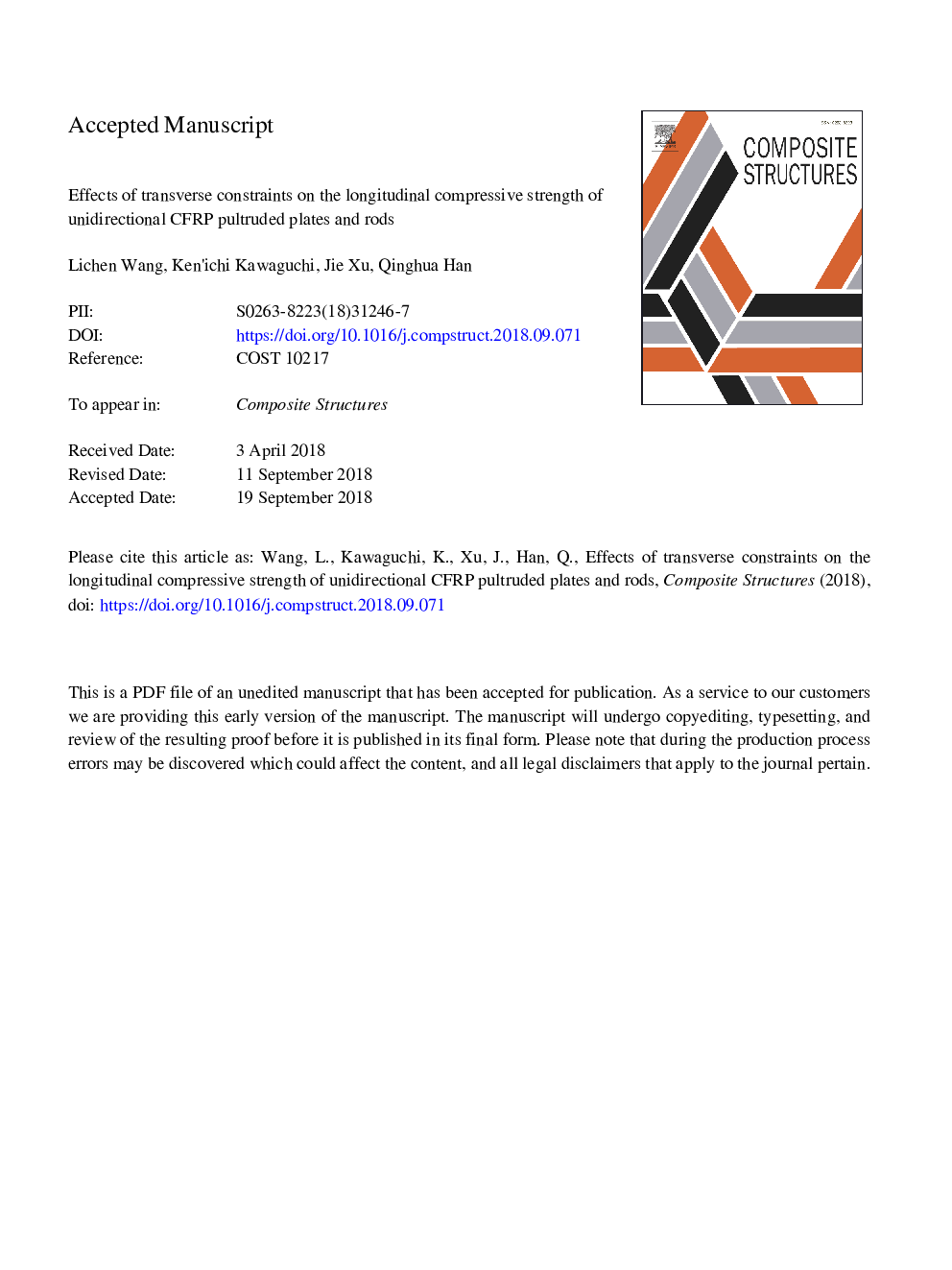| Article ID | Journal | Published Year | Pages | File Type |
|---|---|---|---|---|
| 11024297 | Composite Structures | 2019 | 36 Pages |
Abstract
Unidirectional (UD) carbon fiber reinforced polymer (CFRP) pultruded plates and rods have been widely used for strengthening concrete structures, but their strengthening efficiency has been found to be less under axial compression. Transverse confinement has been shown to improve the longitudinal compressive carrying capacity of UD CFRP composites in practice. However, the lack of a detailed understanding of the relationship between transverse constraints and the improvement of compressive strength leads to a lower material utilization efficiency and a more complicated confinement technique. Therefore, a series of tests and numerical simulations were conducted to analyze and discuss the effect of cross-sectional shape and size, the loading methods, and the transverse constraints on the longitudinal compressive properties of UD CFRP pultruded plates and rods. Some optimized design values of transverse constraints are proposed for the different situations. The results of this investigation can be used to guide the design of the transverse confinement for the hybrid CFRP strengthening technique in concrete columns.
Keywords
Related Topics
Physical Sciences and Engineering
Engineering
Civil and Structural Engineering
Authors
Lichen Wang, Ken'ichi Kawaguchi, Jie Xu, Qinghua Han,
